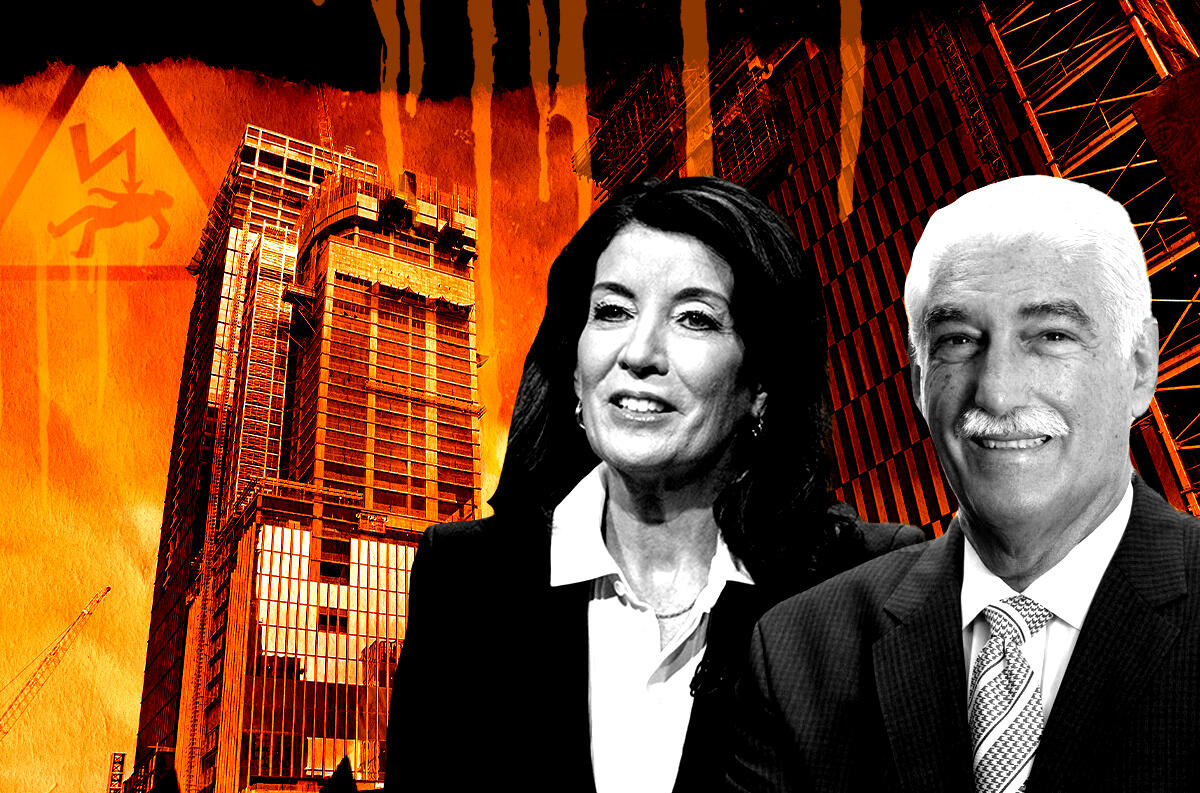Trending
Construction group fights higher fines for worker deaths
Building Trades Employers Association wants Hochul to hold off on signing Carlos’ Law

A five-year-old bill to increase fines related to the deaths of construction workers is waiting for the governor’s signature after a compromise between developers and labor unions, but not every stakeholder is on board.
The New York Building Trades Employers Association is pushing Gov. Kathy Hochul to hold off on signing Carlos’ Law, a measure that would raise the minimum fines for companies found criminally liable for a worker’s death to $500,000 for felonies and $300,000 for misdemeanors. The group, which represents construction managers, is seeking further changes including setting a maximum for the fines and more narrowly defining who can be held liable when a worker is injured or killed.
The state legislature passed the bill in June, but only after the Real Estate Board of New York approached the Mason Tenders’ District Council, a laborers’ union, with a number of concerns. An earlier version of the bill, first introduced in 2017, created new felony and misdemeanor charges for “supervisors” — which REBNY feared could be applied to developers — and created some charges that would have carried mandatory prison time. The two groups reached a compromise earlier this year that eliminated those charges from the bill and helped move it forward.
“As passed by the legislature, Carlos’ Law addresses important gaps in our State’s criminal statutes that will help to better protect workers in the construction industry,” Zachary Steinberg, senior vice president of policy at REBNY, said in a statement.
But Louis Coletti, president of the Building Trades Employers Association, believes the penalties should have a set ceiling, rather than a floor, and that the bill’s language around criminal culpability is too broad.
In an op-ed published by the Gotham Gazette this week, Coletti called on the governor to demand changes to the bill before signing it. He acknowledged that the “idea” behind the measure is an “honorable one.” It was proposed after the death of 22-year-old Carlos Moncayo, who was killed when the walls of an excavation pit collapsed on him at a construction site in the Meatpacking District. The general contractor, Harco Construction, was convicted of manslaughter and faced a $10,000 penalty, the maximum amount under state law.
Coletti argues that as written, the bill will drive up costs for contractors who already pay exorbitant insurance rates and will disproportionately affect minority and women-owned businesses. He said the BTEA had conversations about the bill with the laborers’ union and agreed with some of the changes made, but wants more.
“The amendments did not go far enough to address our concerns,” he told TRD.
Assembly member Rodenyse Bichotte Hermelyn, one of the bill’s sponsors, took issue with the suggestion that the measure would hurt minority or women-owned businesses.
“Some critics of the bill are using MWBEs as a self-serving scapegoat,” Bichotte Hermelyn said in a statement. “Most MWBEs are not big enough to be prime contractors or have not gotten their fair share in becoming prime contractors due to discrimination. Many of these workers can hopefully branch out into their own construction company with safety being a priority.”
A representative for the governor indicated on Thursday that she is reviewing the measure.
Mike Hellstrom, business manager at the Mason Tenders’ District Council, called the BTEA’s opposition to the measure “unfortunate” and “disturbing.”
“This law has no impact unless you are guilty of violating the law,” he said. “Make sure your worksite is a safe worksite. Make sure you don’t cut corners, and you’ll never be impacted by Carlos’ Law.”




